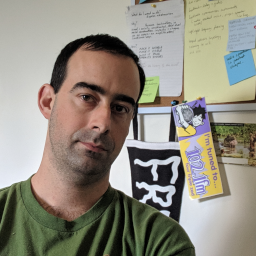
Adam McFillin is an artist engaged in producing works that investigate power and its presence in the protocols and structures of communications networks. By making signals, packets and protocological rhythms audible or visible, he aims to expose the materiality of the digital network and evade the abstractions that exist between user and machine.
In his day job he writes words at a Regional Internet Registry.
DNS over HTTPS (DoH) is coming, and quickly. While there are some remaining quibbles among Internet standards-making types over implementation and implications, browser-makers and open DNS providers are pushing to enable it by default in our browsers.
Overall it feels like a win - our DNS traffic will no longer be vulnerable to eavesdropping or man-in-the-middle attacks - but when we look at the major players (Google, Cloudflare, Mozilla) and think about what they have to gain from collecting even more user information from DNS queries, I'm not so sure.
For a start, our already pretty-damn-centralized DNS infrastructure may become even more centralized - if not topologically, then definitely organizationally. So what can we do about this as radical networkers? Get involved in standards-making or Internet policy discussions? Start running our own caching resolvers at home? Adopt alternative protocols? Well, the answer is definitely "yes" to all of these, but there are pros and cons to the effectiveness of each path.
This presentation doesn't pretend to have all the answers, but aims to give attendees a heads-up about changes to the Internet infrastructural landscape in the hope that together we can address yet another further concentration of power online.